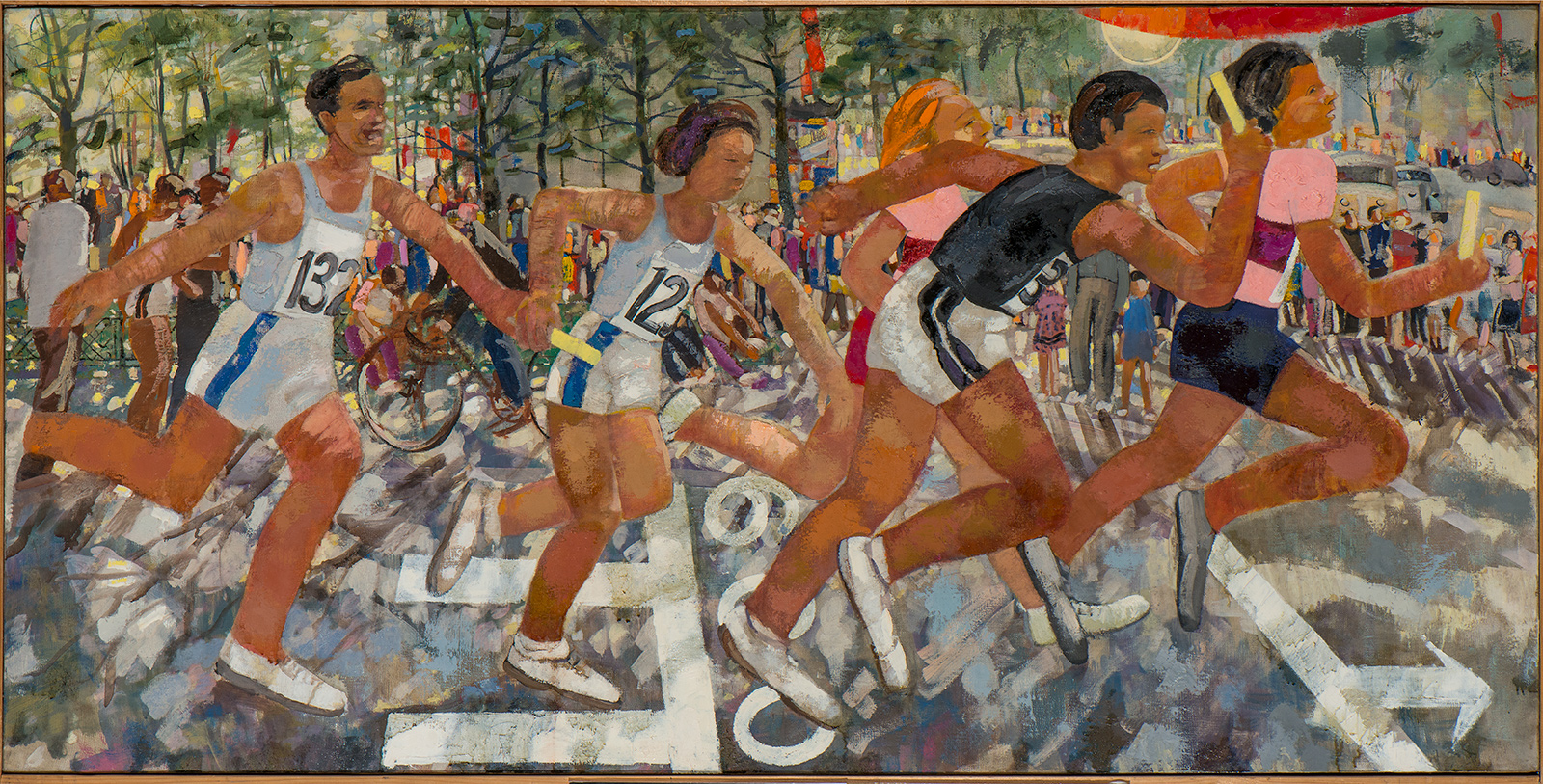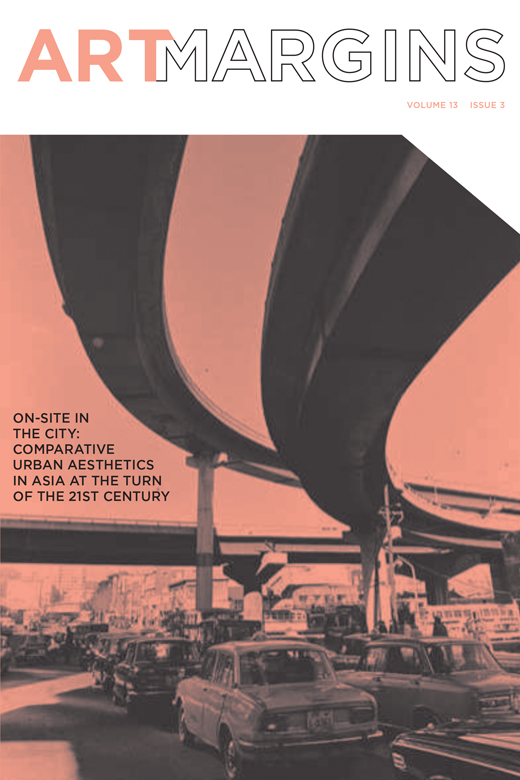Instructive, Dramatic, and Corrective Collectivity: Socialist Realism in the Mirror of Collegial Debates. A Case Study of Documents of the Artists’ Union of the Latvian Soviet Socialist Republic, 1944–55

Janis Paul ̧uks. Relay-Race, early 1950s. Oil on canvas, 97 x 187 cm. Latvian National Museum of Art, Riga. Image courtesy of the Latvian National Museum of Art.
Based on the study of protocols of the Latvian Artists’ Union and the Organizational Committee of the Artists’ Union of the USSR, the article surveys three stages of the introduction of Socialist Realism in Latvia and different forms and functions of the enforced collegial collectivity facilitating this process. The article examines the transformation of artistic life in Latvia during the period of Stalinism, which not only meant stylistic transition towards Socialist Realism but also involved the imposition of a range of practices of collective supervision of artistic production and censorship, including collective debates, collective advice, collective learning and collective critique. Ultimately ideological and stylistic demands of the normative collectivity came into conflict with the key presumptions artistic autonomy adhered to by the local artists. Taking into account the center-periphery dynamics of Soviet cultural policy during the Stalinist period the article examines three stages in these discursive practices that are identified as manifestations of instructive, dramatic, and correctivecollectivity.
Content for this article is available at MIT Press. It is available as: No Access/Subscription Only . Click here for more information.



